
Supplement companies might not like hearing this, but — truth is — you can get great results with just a solid exercise program, a healthy and balanced diet, and lots of sleep. And by staying consistent those basics, a regular trainee can see tremendous strength gains and/or fat loss.
So where does supplementation come in? And what should you really take?
Think 80/20 Principle — 20% of causes leads to 80% of effects
Sleep, resistance training, and good food (plus a post-workout shake) are the 20% that causes 80% of your results — they’re the priorities. The commandments. And once you master them, then things like supplements, peri-workout nutrition, and unique exercises (reverse lunges with valslides, anyone?) come in.
With that said, here’s a list of supplements that might help you get to the next level, split into three categories: the “Must-Haves,” the “Could-Haves,” and “For The Advanced.”
Quick Note: This isn’t a complete list.
These are just some suggestions for the average trainee who wants to spend a few extra bucks to improve their health, strength gains, and fat loss. If you want to learn more or give reviews about others, please feel free to ask or comment at the bottom. Enjoy!
The Must-Haves
If you went shopping for supplements right now, these are the four you should get before thinking of anything else. Think of them as your foundations.
Only one of these actually focuses on building muscle.
Multivitamins
Show of hands — how many of you eat a good variety of veggies, fruits, lean meats, healthy fats, and whole-grains everyday?
I know I don’t.
It’s called being “human.” (Or in some circles, “broke.”) And though we try to eat healthy, we can’t always get the proper amount of vitamins and minerals through foods. That’s where a multivitamin helps.
Quick disclaimer: don’t use a multivitamin just to make up for a lousy diet. You still have to eat healthy — or try, at least. Think of the multivitamin as a way to get the stuff you may have missed in your awesome attempt to eat well.
Fiber
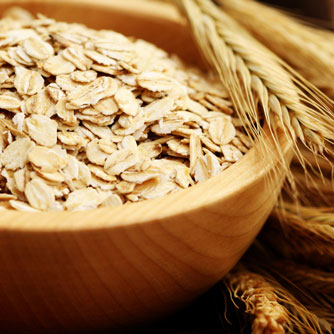 A high-intake of dietary fiber has been linked to lower risks of heart disease and type 2 diabetes. And if you’ve ever been constipated, it kind of gets rid of that. (How can you say “no” to that?!)
A high-intake of dietary fiber has been linked to lower risks of heart disease and type 2 diabetes. And if you’ve ever been constipated, it kind of gets rid of that. (How can you say “no” to that?!)
But while several groups recommend anywhere from 25-35 grams of fiber per day, the average American eats only 15 grams. And that ain’t shit. (Pun intended.)
The best way to get more fiber into your system is improve the quality of food you eat — i.e. more veggies, fruits, whole-grains, etc. But when life gets in the way of a proper diet, make sure you keep a fiber supplement close. Even with my attempts to eat healthy, I still take a fiber supplement daily.
(That’s not too much information, right?)
Fish Oil
Supplementing with fish oil reduces rates of heart disease, cancer symptoms, and joint inflammation while speeding up fat loss through diet and exercise.
Eating more fish is a great way to naturally get more omega-3 fatty acids, but for those who can’t be bothered, fish oil supplements are a great way to get fishy.
Make sure, however, you’re getting a quality product. Omega-3 dosages aren’t regulated by the FDA, and some fish oil products on the market contain higher levels of PCB, mercury, or are rancid. And while you won’t OD on fish oil, too much can be a bad thing. Everything in moderation, right?
I take two capsules of fish oil everyday. I also love fish, so me and omega-3’s get along just fine.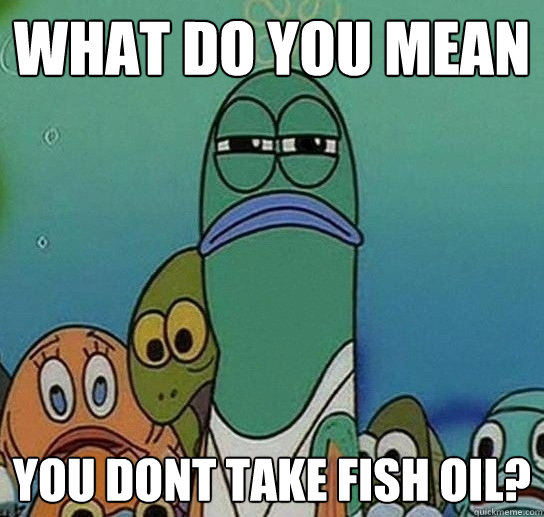
Protein
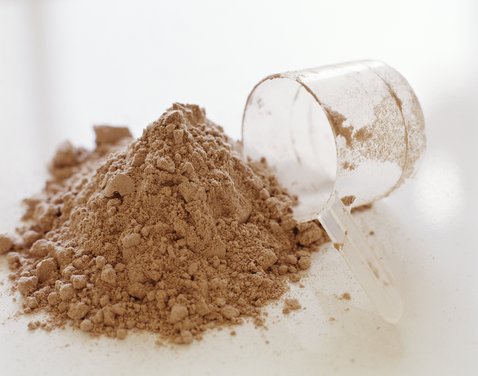 Protein is one of the “no duh’s” of building muscle.
Protein is one of the “no duh’s” of building muscle.
It contains branded chain amino acids (BCAAs), repairs your muscle cells and bones, and takes more calories to digest than other foods. With resistance training, protein supplements help increase strength gains, muscle gains, and improve recovery from workouts
Though the required amount of protein is debated, I stick to Precision Nutrition’s Dr. John Berardi recommendation of 1 gram of protein per pound of bodyweight for exercising individuals. (So if you weight 180lbs, eat 180g of protein.) Most people, however, fall short. I’ll typically drink a 1-liter mixture of protein powder, juice, cinnamon, and water before, during, and after a workout.
A great write-up on protein supplementation by Precision Nutrition can be found here.
The Could-Haves
So you picked up all your “must-haves.” Awesome. You’re feeling better, shitting better, and there’s something new growing inside you. (It’s called “muscle.”) What if you want more?
Here’s a list of more supplements that can also spice up your health and workouts:
Greens
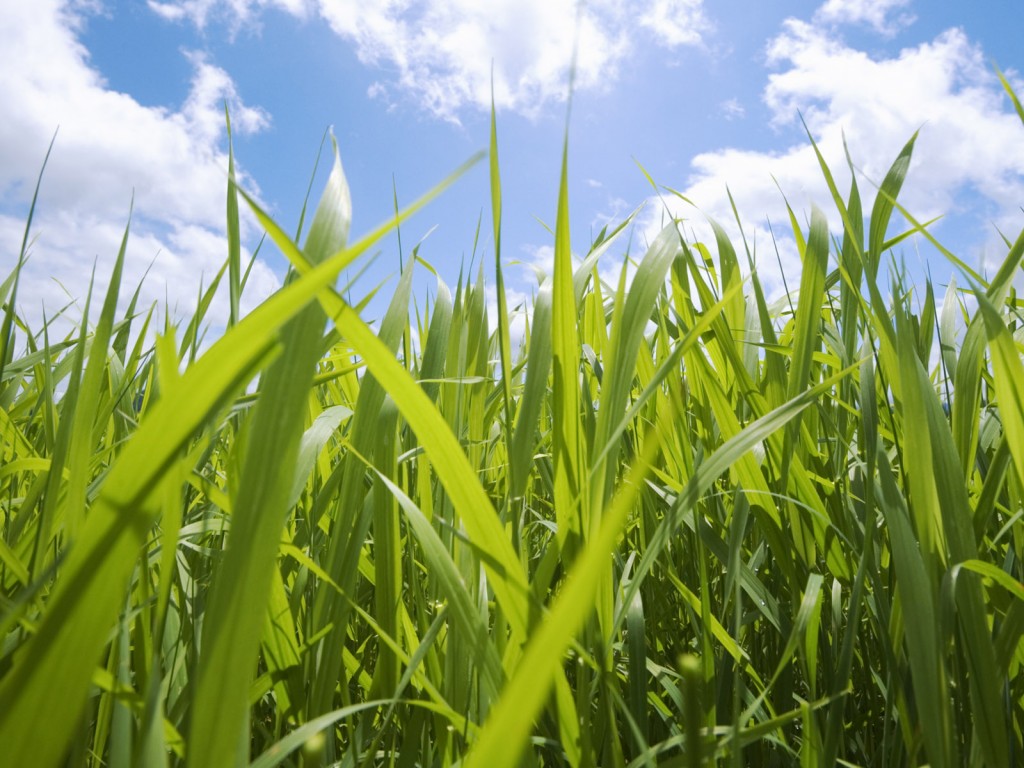
Green supplements are vegetables, fruits, and grasses that have been compacted into a powdered form. They contain an incredible amount of vitamins, minerals, nutrients, and fiber.
Most people don’t get nearly enough servings of fruits and veggies. According to Dr. Berardi, only 3% men and 7% of women meet the minimum 3-5 servings of fruits and vegetables per day. Taking a green supplement is a great way to get those servings.
Probiotics
 Probiotics help replenish the healthy bacteria that chill in your intestines. Poor diets or medications remove a lot of our bacteria friends, so it’s important to supplement.
Probiotics help replenish the healthy bacteria that chill in your intestines. Poor diets or medications remove a lot of our bacteria friends, so it’s important to supplement.
Taking probiotics can help you digest foods better and absorb more nutrients. They also reduce gastrointestinal infections and can treat irritable bowel syndrome.
Eating foods with live cultures (like yogurt or even Yakult) also help you get more good bacteria into your diet. But if you decide to pick up some capsules, make sure they contain plenty of Lactobacillus acidophilus and Bifidobacteria bifidum. (Say that ten times fast.) Also, remember that probiotic pills usually need to be refrigerated.
Creatine
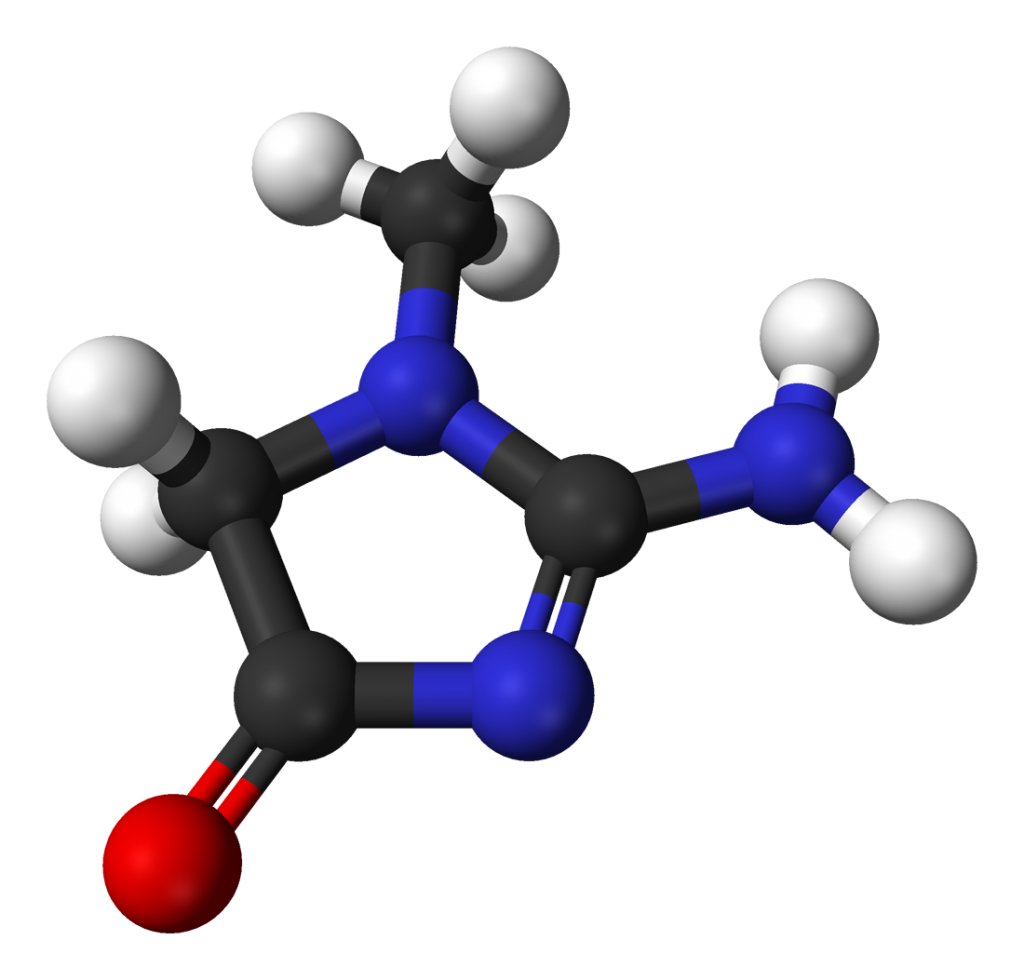 Creatine is the most researched performance-enhancing supplement in fitness. It occurs naturally in your body and is stored in your muscle cells — during bursts of speed and strength, it helps give you energy. Your body, however, only has a finite amount. By supplementing creatine, your body can provide more energy helping you improve strength, speed, power, and body composition.
Creatine is the most researched performance-enhancing supplement in fitness. It occurs naturally in your body and is stored in your muscle cells — during bursts of speed and strength, it helps give you energy. Your body, however, only has a finite amount. By supplementing creatine, your body can provide more energy helping you improve strength, speed, power, and body composition.
Studies show that creatine also improves brain performance, and it’s been used in treating Parkinson’s Disease. It’s a relatively safe supplement — the most side effects are minor gastrointestinal distress and weight gain (mainly water weight).
[My buddy, Anthony Mychal, wrote a terrific and well-researched article about creatine. Check it out here.]
For The Advanced
Now your cabinet is stocked with supplements. Awesome. The previous seven would be enough for most mortals; but if you’re looking to reach superhuman levels, you might consider the following supplements.
A few notes, however. One, I don’t take any of these supplements. (And since I’m not speaking from experience, feel free to take everything with a slab of salt.) Two, the reported benefits of some of the following supplements are debated. Three, if you followed the progression, you’d already be taking seven supplements. Four, ask yourself if you really need these to improve your fitness — in other words, don’t rely on these to save your from a less-than-stellar exercise routine and diet.
ZMA
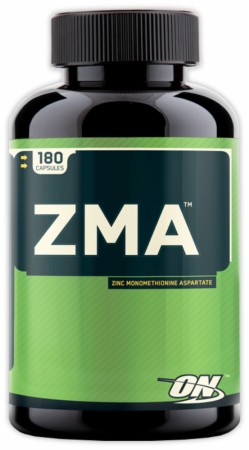 ZMA — a combination of zinc, magnesium and vitamin B6 — is designed to prevent the loss of those vitamins and minerals during exercise. Since they are important in protein synthesis, its supplementation could improve athletic performance.
ZMA — a combination of zinc, magnesium and vitamin B6 — is designed to prevent the loss of those vitamins and minerals during exercise. Since they are important in protein synthesis, its supplementation could improve athletic performance.
Some claim that it improves sleep quality, strength, endurance, recovery, and testosterone levels, but the research has yet to support it. And a few who’ve taken ZMA reported more sexual fantasies. (Now that I think about it, that might be a good enough reason to take it.)
CLA
 Conjugated linoleic acid (CLA) are unique fatty acids, found in foods such as beef and dairy products, that may lower body fat and improve body composition. Paired with other supplements, one study showed CLA was also beneficial in building muscle.
Conjugated linoleic acid (CLA) are unique fatty acids, found in foods such as beef and dairy products, that may lower body fat and improve body composition. Paired with other supplements, one study showed CLA was also beneficial in building muscle.
The research is still new and, at times, inconclusive. Some studies linked CLA to health declines such as higher cholesterol and lowered insulin sensitivity.
Glutamine
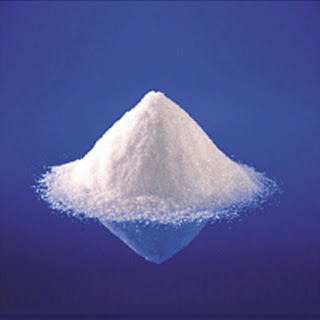 Glutamine is the most abundant amino acid in your body and plays a role in protein synthesis and muscle creation. And while its prevalent in many foods, glutamine (or L-Glutamine) supplements are believed to have strength and muscle-building benefits while reducing catabolism and protein degradation.
Glutamine is the most abundant amino acid in your body and plays a role in protein synthesis and muscle creation. And while its prevalent in many foods, glutamine (or L-Glutamine) supplements are believed to have strength and muscle-building benefits while reducing catabolism and protein degradation.
And though research is inconclusive, glutamine may increase plasma human growth hormone levels (HGH).
Branched-Chained Amino Acids (BCAAs)
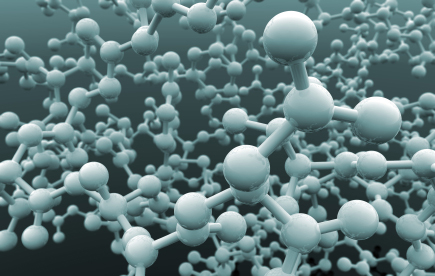 BCAAs contain the essential amino acids (amino acids that you can only get through diet) leucine, isoleucine, and valine, make up about one-third of our skeletal muscle tissue, and are important in protein synthesis. Studies show BCAAs may reduce muscle soreness and fatigue and increase exercise capacity while lower rates of perceived exertion (how hard we think we are working).
BCAAs contain the essential amino acids (amino acids that you can only get through diet) leucine, isoleucine, and valine, make up about one-third of our skeletal muscle tissue, and are important in protein synthesis. Studies show BCAAs may reduce muscle soreness and fatigue and increase exercise capacity while lower rates of perceived exertion (how hard we think we are working).
Why are they “for the advanced?” First, the evidence is still hazy. Second, a good protein powder already contains BCAAs. (Though *supposedly* not as pure.) Third, if you need more BCAAs than what’s already in protein powders, you’re probably lifting some serious weight.
And A Bonus!
Green Tea

Okay, this isn’t really a supplement. (And it might just be because I’m drinking a delicious glass of ice cold green tea right now.) But the advantages are awesome:
[list]
- Reduces cholesterol
- Increase energy expenditure and fat oxidation
- Reduces risk of death from cardiovascular disease as well as many cancers
[/list]
And it’s tasty. I try to drink at least one cup everyday.
And there you have it! What supplements do you take? What were your results? Any recommendations? Leave a comment, “Like” it, hit me up on Twitter, or add me on Facebook.
[tweetbutton]
Terence Kim Min Kwi Quinn Jess Daquigan Jocson Khaled ELmasri Margeaux Mandap Ali Hadian Sunil Tatapudy Sean Kim Jane N. Kim Hector Quinonez
Victor Giron Belen Amaya Almonte Masha Groysman James Dixon Brad Walsh Louie Ravana Jr Andrew Taaffe Marcus Harpin
Good info, Anthony!
Thanks for reading, Margeaux!
Great info Anthony. It’s true that there are different levels of supplementation, and some aren’t even worth it if you aren’t even getting your basic diet in order. I will be sure to redirect this page to some of my clients in the future.
Thanks Miguel. You’re right — the ability to prioritize what’s really important is underrated. I appreciate that, brotha.
Great post Anthony. Easy to read and easily digestible (haha). I definitely need to get my green tea on though! Are you sure Berardi suggests 1 gram of protein per lb of bodyweight for exercising individuals? I feel like it may be 1 gram of protein per kg off bodyweight. It’s been a while since I watched/read his stuff though.
Great write up though, cheers.
Thanks for the kind words, Jeremy! Green tea is awesome, haha. It seems high, but he’s definitely talking about the training population. I didn’t cite it, but I obtained his recommendation from a Perform Better Strength Coach podcast. According to him, less than 50% reach that amount.
creatine over protein…
Yes, creatine is a great supplement! But for a novice trainee who, perhaps, is far from squatting 2-times their bodyweight, they won’t have to worry about their energy during a workout — their workout isn’t difficult enough to necessitate creatine supplementation. All trainees, however, could benefit from a better ratio of nutrients; thus, the protein supplementation.
Also, after a workout, your body is breaking down muscle. Getting a protein-shake post-workout (and even pre-workout) reduces this breakdown and speeds up the switch to an anabolic (muscle-building) state.
Would definitely add Vitamin D to the list of must-haves. Far too many people deficient in it.
Great point! Vitamin D is very important. I was thinking of adding Vitamin D to the list, but you can get a great dose just by standing in the sunlight for ten minutes. I also wrote about it in this article.
Thanks for commenting!
Anthony, you hit the nail right on the head on this one. I will be referencing this article of yours to my clients. Thanks! Keep ’em comin!
Thanks Chris! I appreciate it!
I too drink green tea every day , and take two omega 3 supplements, take a look at my comment on your acne post please 🙂 I finally found someone who shares something’s in common ,
Fantastic! Hope it helps!
Wow, this was a great article. You kept it objective as much as possible, did not try to push reader to take any of these. I enjoyed it!
Thanks, Mannie!
Sounds good! I’m nearing 62, no health issues. Taking Green Tea/EGCG sup., along with two caps Omega 3, 600 calcium, Glutamine/Flex and a Multi-Vit.
This was some good info. But, ultimately, I agree that a perfectly maintained diet would exclude taking supplements. Good diet and exercise daily.